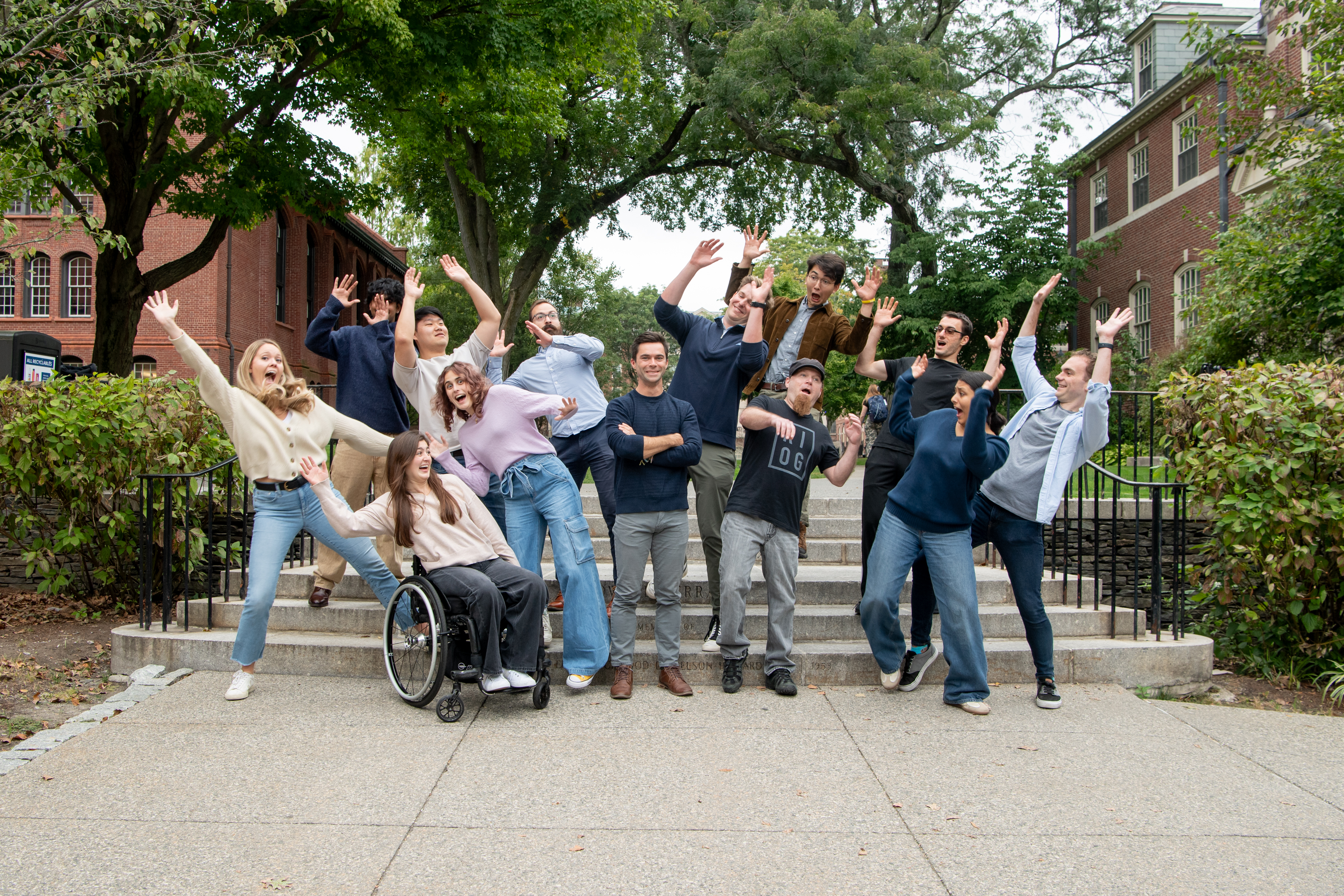
Borton Lab
Designing, developing, and deploying neurotechnology to better understand the nervous system and improve human lives

Designing, developing, and deploying neurotechnology to better understand the nervous system and improve human lives
Welcome Michelle Newbery, Ph.D. from University of Wollongon Australia who is here on a visiting research scholarship to explore 3D multicellular culture platforms!
Congratulations to Drs. Sam Parker and Sophie Brown on their most excellent thesis completion and defense!!! Could not be prouder of the work they did and will continue to do in the future.
So excited to be welcoming Claire Petersen, Gabriela Machado, and Josh Meier to the lab, and team, this coming Fall!
We are funded by the Defense Advanced Research Projects Agency (DARPA), the National Institute for Neurological Disease and Stroke, the National Institute for Mental Health, and the Department of Veterans Affiars.




The Borton lab is committed to creating an environment for the team that supports a diversity of thoughts, perspectives and experiences, and honors your identities (including race, gender, class, sexuality, religion, ability, etc.). Our lab seeks to recruit, support, and retain members from diverse backgrounds and groups that have historically been underrepresented in the sciences. As a team, we are committed to creating a learning and working environment where individuals feel supported and invested in the lab mission, and each other.
We are always looking for driven team members to help us design, build and implement novel neurotechnology for investigating the nervous system. Students with an electrical/biomedical engineering and/or neuroscience background are encouraged to apply. If interested in joining the lab, please send a note to our inbox (), and we will get back to you.
Research staff openings |
Laboratory manager and technical assistantWe will soon be opening a position for a laboratory manager and technical assistant. Apply here |
Postdoctoral Research Associate openings |
General announcementWe invite applications for Postdoctoral Research Associates to help advance our laboratory mission. Specific areas of interest are electrophysiology analysis and biomarker detection in complex brain and spinal cord signals, as well as implantable hardware development. Applicants must be eligible to work in the U.S. Interested candidates should email CV and recent publications to Prof. Borton ( ) directly with reference to potential project details |
Doctoral student openings |
General announcementWe are always eager to bring motivated, creative, and rigorously trained students on to our team. Interested students should explore the Brown University Biomedical Engineering, Electrical Engineering, and Neuroscience graduate programs to familiarize themselves with the university. See below for specific projects where we are looking to grow our team. Interested candidates should email a CV to Prof. Borton ( ) directly Understanding the volitional control of movementWe aim at determining how sensorimotor cortex in nonhuman primates contributes to the control of volitional adjustments to locomotion in an adaptive manner. The ability to modify gait with precise, voluntary adjustments is what allows animals to navigate complex terrains and to execute skilled actions during ongoing pursuits. Beyond the relevance to the basic neuroscience of sensorimotor control of locomotion, the aims of the project are essential for the development of new mobility therapies, including brain-machine interfaces, for restoring walking and volitional leg control in people with paralysis. We are recruiting exceptional doctoral students to peform this exciting computational and experimental research. See here for more details on the project. Interested candidates should apply to the Brown University Biomedical Engineering Doctoral Program or the Brown University Neuroscience Graduate Program Neural Coding and Control of Pain in Somatosensory CortexThis project proposes to develop a novel neurotechnologies and behavioral assays for measuring somatosensory and pain detection in mice, and to use that assay to investigate the neural mechanisms of sensory processing in the brain. Data generated from this proposal will provide a platform for testing analgesics and to enhance our understanding of the basic mechanisms of neural circuits in the brain in health and potentially disease conditions relevant to chronic pain in humans. Interested candidates should apply to the Brown University Biomedical Engineering Doctoral Program or the Brown University Neuroscience Graduate Program Investigating the roles of innate neuroinflammation in Alzheimer's DiseaseWe aim to build a modeling tool to study human microglia in health and in disease, with specific applicaiton to glial contributions to Alzheimer's Disease pathogenesis. We focus on the neuroinflammatory mechanisms of Alzheimer's Disease. We are developing a hybrid in vitro model to study human iPSC-derived microglia (iMGs) in a 3D xenoculture system. See here for more details on the project. Interested candidates should apply to the Brown University Biomedical Engineering Doctoral Program |
Masters student openings |
Spinal information processingWe invite Masters students to work with the Intelligent Spine Interface team to develop software interfaces and data pre-processing pipelines for control of spinal neuromodulation systems and analysis of spinal electrophysiology. Interested candidates should email a CV to Dr. Jonathan Calvert ( ) directly Investigating the roles of innate neuroinflammation in Alzheimer's DiseaseWe invite Masters students to join our team to explore neuron-glial interactions in Alzheimer's Disease using a 3D in vitro model. Successful candidates will have a background in microbiology techniques, confocal imaging, and the handling of rodents. See here for more details on the project. Interested candidates should email a CV to the laboratory at ( ) directly |
Undergraduate student openings |
Neurotechnology development acceleration platformWe invite undergraduate students with strong computer science, computer engineering, with interest in user interface design, embedded systems, or real time computing to apply to work with our team. Interested candidates should email the laboratory inbox (), and we will get back to you. |